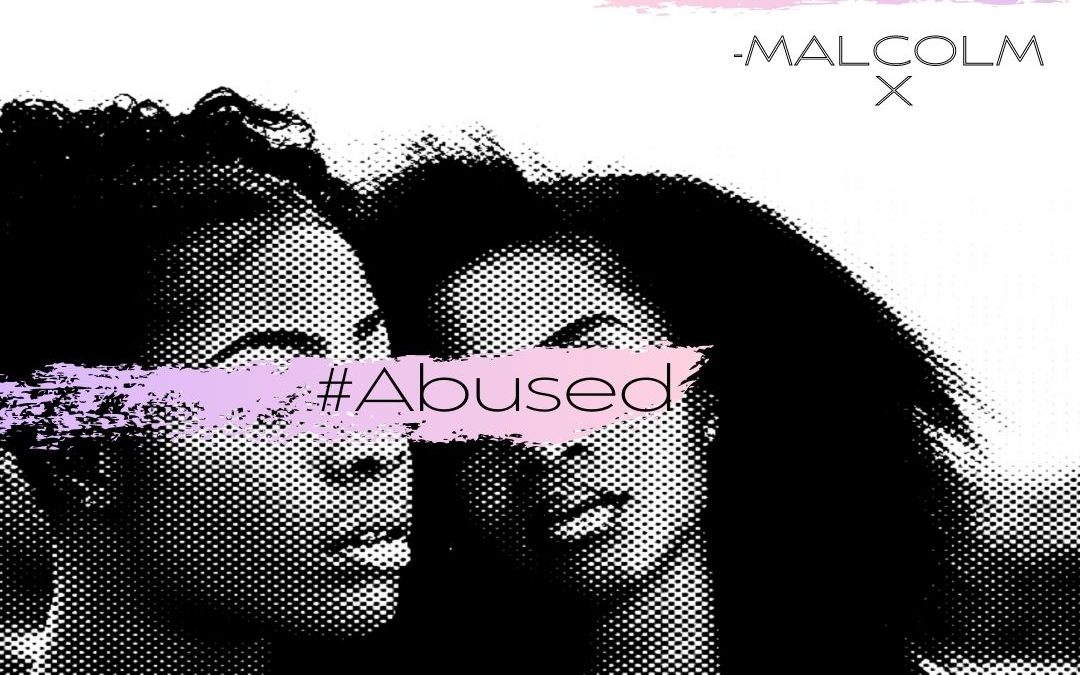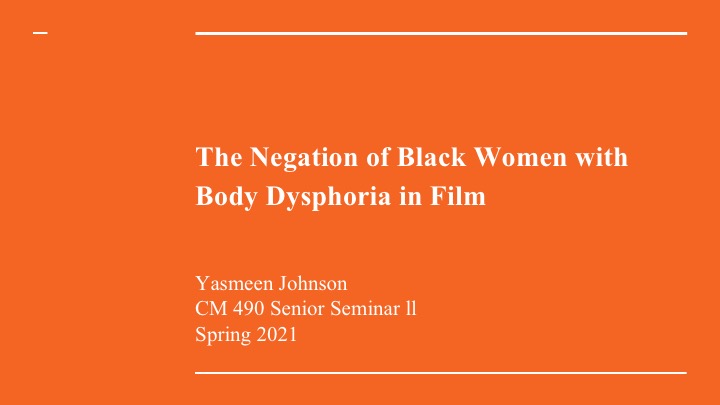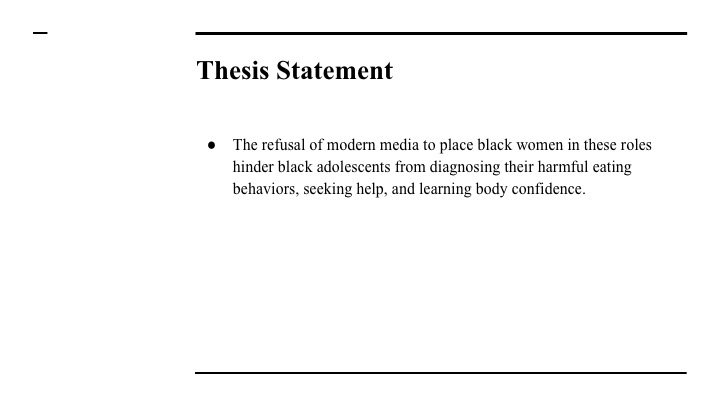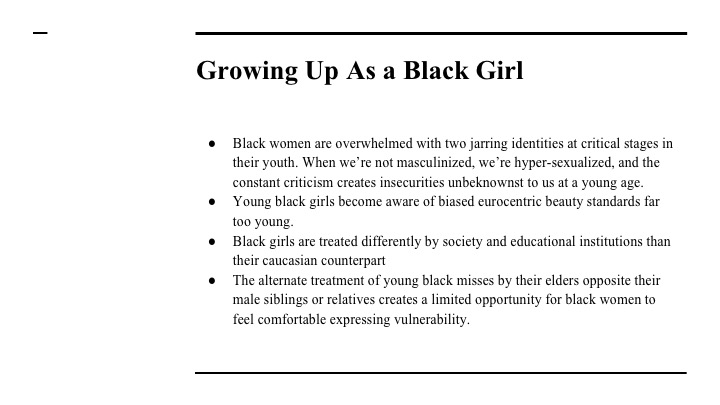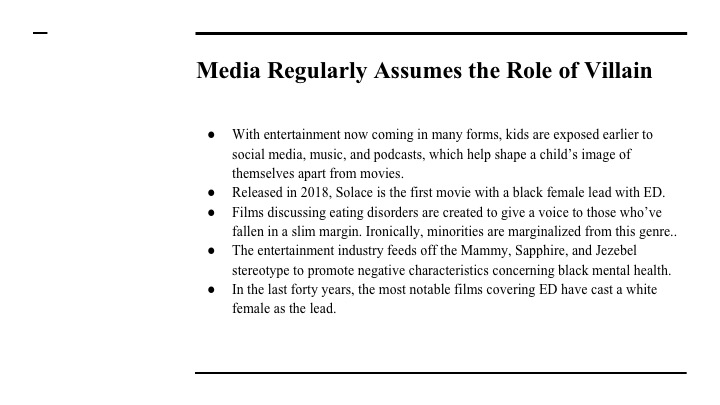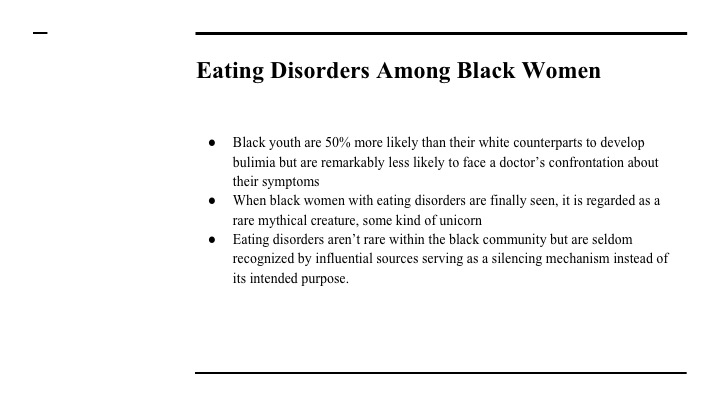- The refusal of modern media to place black women in these roles hinder black adolescents from diagnosing their harmful eating behaviors, seeking help, and learning body confidence.
- Black women are overwhelmed with two jarring identities at critical stages in their youth. When we’re not masculinized, we’re hyper-sexualized, and the constant criticism creates insecurities unbeknownst to us at a young age.
- Young black girls become aware of biased eurocentric beauty standards far too young.
- Black girls are treated differently by society and educational institutions than their caucasian counterpart
- The alternate treatment of young black misses by their elders opposite their male siblings or relatives creates a limited opportunity for black women to feel comfortable expressing vulnerability.
- With entertainment now coming in many forms, kids are exposed earlier to social media, music, and podcasts, which help shape a child’s image of themselves apart from movies.
- Released in 2018, Solace is the first movie with a black female lead with ED.
- Films discussing eating disorders are created to give a voice to those who’ve fallen in a slim margin. Ironically, minorities are marginalized from this genre..
- The entertainment industry feeds off the Mammy, Sapphire, and Jezebel stereotype to promote negative characteristics concerning black mental health.
- In the last forty years, the most notable films covering ED have cast a white female as the lead.

